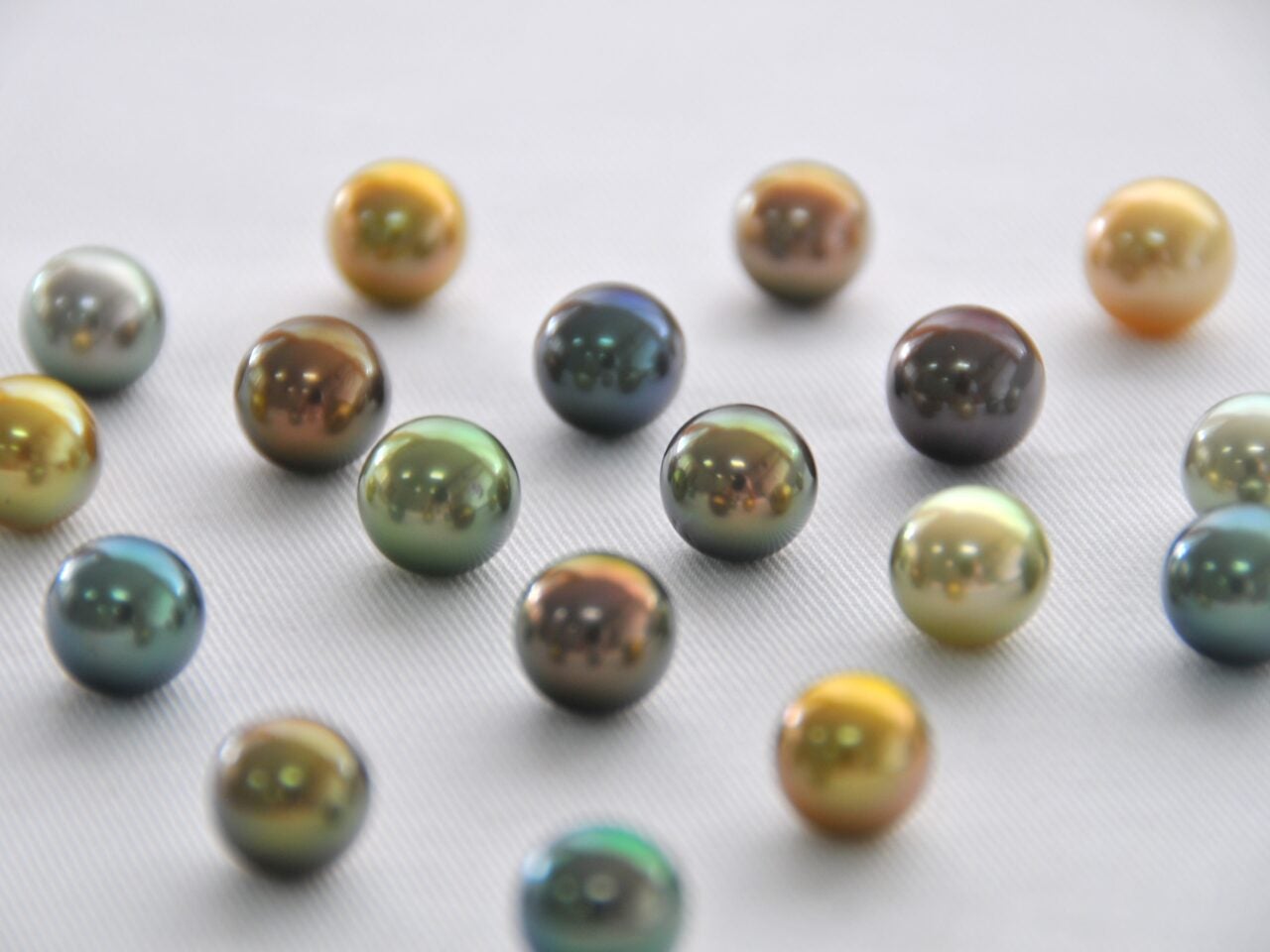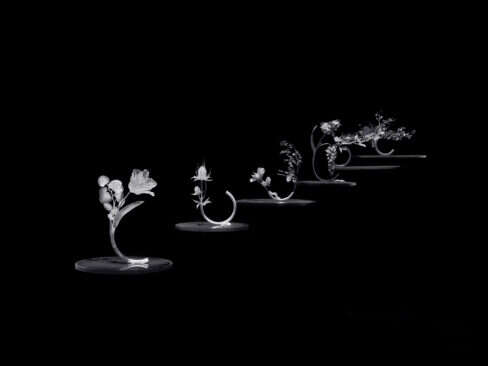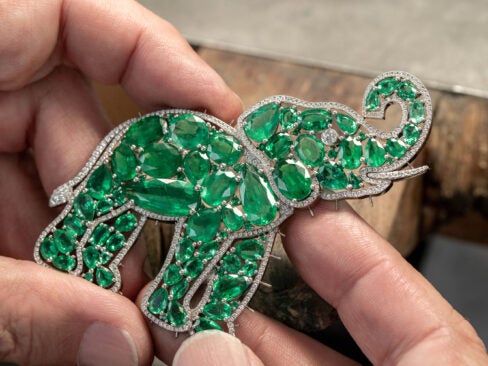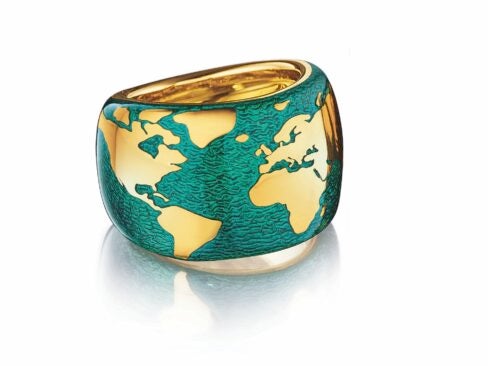Justin Hunter does not have an ordinary job by any means. Living and working in Savusavu, Fiji, Hunter is a pearl farmer who spends most of his time overseeing a business that includes breeding and raising black-lip oysters and harvesting their richly hued dark pearls years later. While most pearl farmers are supporters of a clean ocean, Hunter is a staunch supporter of, and activist for, pristine waters, a clean environment and a sustainable pearl farming trade that benefits the entire community.
Fiji pearls are most known for their vibrant colors that can’t be found anywhere else in the world, since they derive their hues from the environment. The Fiji colors — think earthy tones from rich chocolate brown and copper to gold and deep green — and the relatively scarce quantity of pearls harvested annually make these pearls the rarest gems from the sea. J. Hunter Pearls Fiji, Hunter’s pearl farming company, is one of the world’s largest suppliers of these stunning gems of the sea.
“Pearl farming is done in remote places like Fiji, Western Australia and the Philippines, because the most important requirement we have before we can grow pearls is to grow oysters. And to do that, you need a really pristine environment,” says Hunter during a Zoom interview where I could see the bay in the background. “Oysters are an indicator species. They pick up any pollutants in the environment and they can’t swim to get away, so quite often they die without that pristine environment.
When we find those clean waters, it is in our best interest — and in the best interest of the communities that we are a part of and that we create jobs and economic opportunities for — to safeguard this environment, to keep creating jobs and livelihoods. Everyone is invested in protecting our seas, as they are our sources of income.”
[See also: Jewelry Icons: Leaders of the Past and Future]
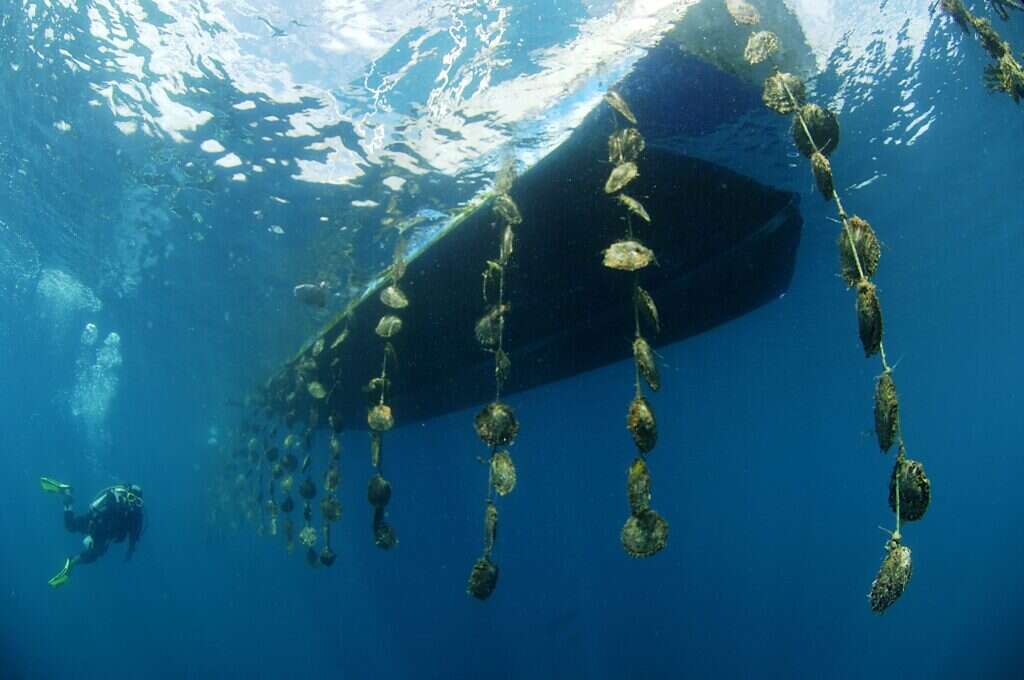
The thing is, oysters don’t grow naturally in the bay of Fiji. So when Hunter opted to leave his family-owned shellfish company in America at the turn of the new millennium to start his pearl farming business, he had to breed oysters and form solid relationships with the people of the local villages and develop new pearl farming techniques to create a sustainable trade.
“In Fiji, we have a lack of oysters, so we have to grow our own,” says Hunter, noting that oysters act as natural water purifiers. “It takes a couple of years to breed oysters and have them grow to the point where you can implant them with a seed, which then takes two to three years to turn into a pearl.
[See also: The Sustainable Jewelry Brands You Need to Know]
“You need to give them plenty of space, keep them clean to keep them healthy, and take care of them in the hopes they will produce a pearl of an excellent exportable grade. This is where we are truly merging marine conservation and economic opportunities. It is a change of culture from resource extraction to resource preservation.”
Years ago, Hunter said he developed a Fiji Pearl Development Plan on how pearls could be recognized as part of the blue economy. “The basis of a blue economy is to create economic growth without destroying the environment in coastal communities. The goal is to show in the long term that it is more valuable to keep these scenic, beautiful places clean for business and tourism,” says Hunter.
“As a growing community and a developing island, we lack some things like liquid waste disposal, proper recycling procedures and sewerage systems that developed countries have. I wanted to transfer that technology to small coastal communities. Years from now, my pearl farm should not see a decrease in water conditions because of the lack of sewage or disposal systems. Not just my farm, but people’s lives and their economic dependency on tourism would also be impacted.”
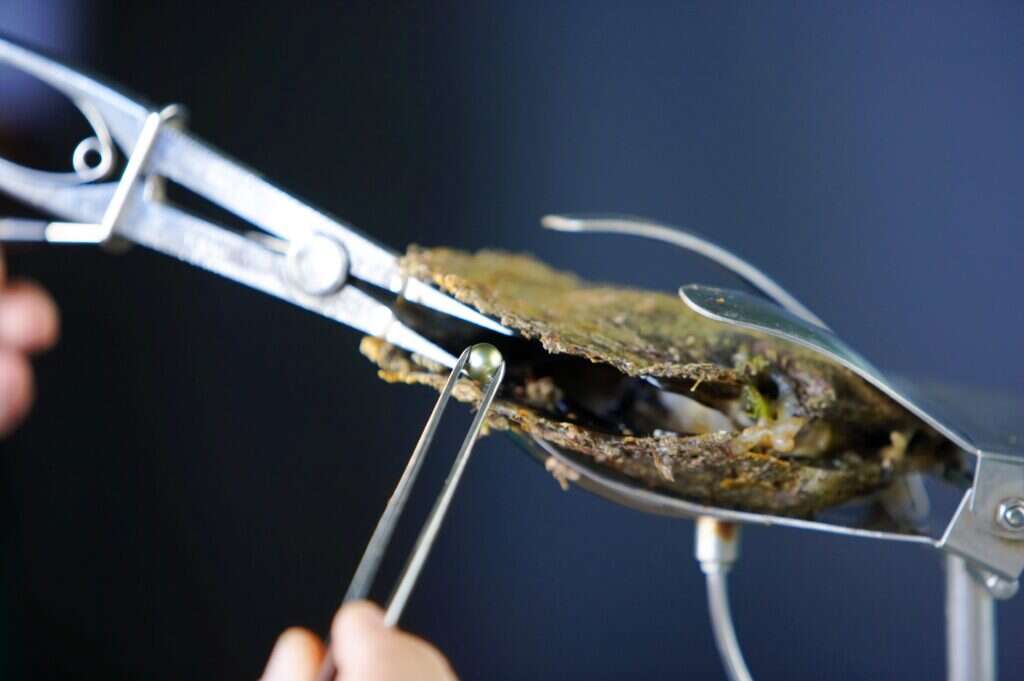
Hunter says his goal is to put the proper system into effect for an island like Fiji before it becomes too late, noting that places all over the world seeking ways to keep water clean are reestablishing their oyster populations that were robust a hundred years ago, but were wiped out by pollution. “We don’t want to have to go through that. We want to be able to learn from it, so we want clean power, clean fuel, not too many fertilizers and other things that are the enemy of our tropical rain environment.”
Additionally, Hunter says that he is very conscious of the role pearl farms play and, as such, J. Hunter Pearls Fiji does not let anything go to waste. They use the mother-of-pearl that is discarded as a byproduct of pearl farming for carvings, jewelry and other things. They also use slower-growing oysters as a luxury seafood.
“Today’s environmentally conscious customers want to know we are not wasting anything. They also want to know not just that what they are buying is not having an impact but is actually having a positive impact. When you are buying pearls, you feel you are investing in the health of the ocean; you are investing in these pristine places.”
[See also: How Ethically Sourced Diamonds Are Changing the Industry]





